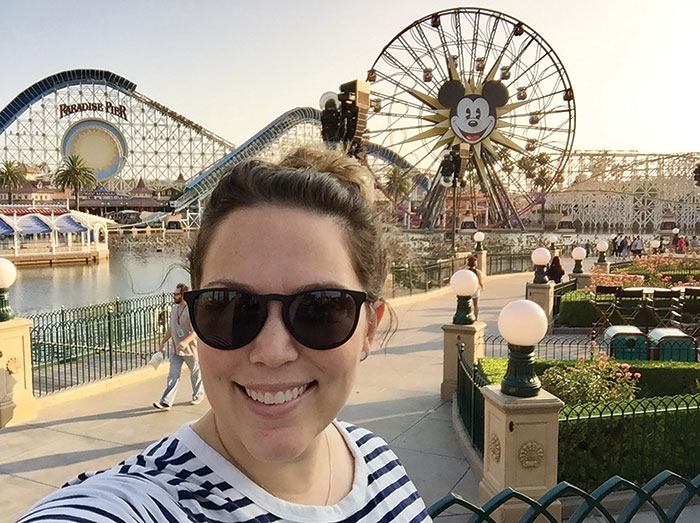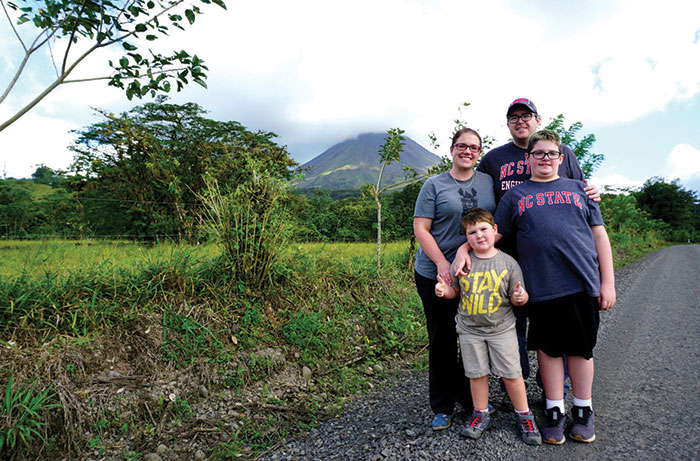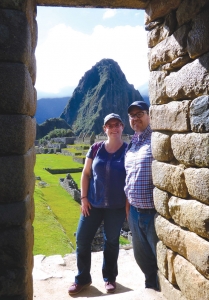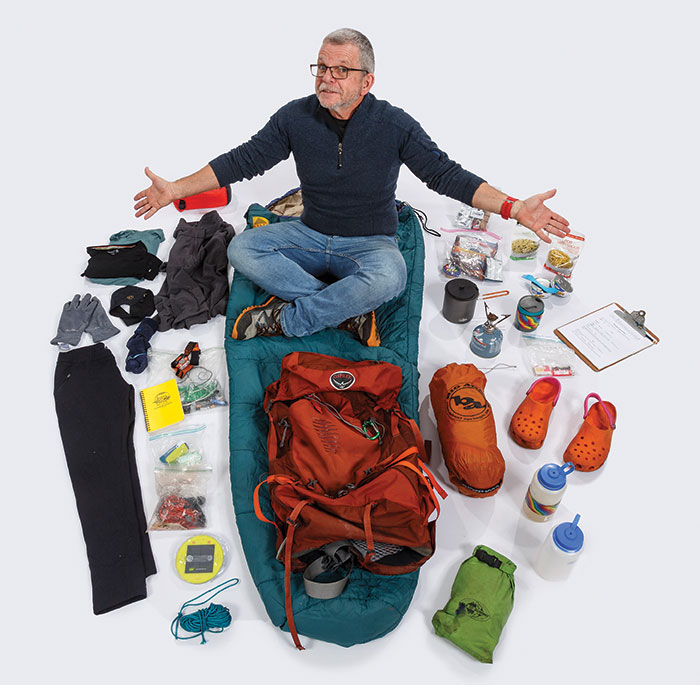Travel has become so easy, a vacation can be planned with a few clicks, a hotel reservation and a plane ticket.
But some adventures still require advance planning — up to a year before you expect to leave. Whether they require special equipment, precise scheduling or official paperwork, these complex trips are often once-in-a-lifetime expeditions, and the memories created more than make up for the hassle.
But where to start? To set you on the right path, we asked three veteran travelers to share their expertise and their checklists.
Outdoor adventure
All the gear and gadgetry at the local outdoor store can be mind-boggling for a novice camper, so Triangle-based outdoor writer and outfitter Joe Miller suggests starting with a tent and maybe a camp stove.
ncparks.gov — Start here to research parks, activities and amenities.
ncparks.gov/make-reservation — Stake out a spot up to 11 months in advance.
GetgoingNC.com — Joe Miller writes about hiking, backpacking and other outdoor activities. Sign up for his camping classes at getgoingnc.com/camping
Source: Joe Miller, GetgoingNC.com
“One of the great things about car camping is so much of what you need, you already have,” said Miller. “For sleeping you can bring a bunch of blankets — maybe you’ve got an inflatable mattress.”
Folks might not need to buy much, but it pays to create a checklist of equipment and supplies. At the camping class he leads, Miller provides students with a starter checklist. Never leave the essentials of what you need to memory, he says.
A successful outdoor trip also depends on research, and a good place to begin is the North Carolina state park websites, which describe activities, campsites, amenities and often include reviews. Nearby attractions can also inform where you want to camp.
State park campsite reservations open Jan. 2, and can be made up to 11 months in advance. By making your reservations early, “you get the peace of mind knowing you’re going to have that spot, and you’re getting a good spot,” said Miller.
Being together as a family — and away from the distractions of technology — makes camping especially good for making memories, he says. People forget the annoying things and remember the fun times.
“With camping there can be some inconveniences, but you’ll have those highlight moments, especially if you’re a family and you’ve got kids.”

Writer Valerie Marino visited Disneyland in July, peak season for visiting the Mouse. Other than January, she says there are few slow times at the theme parks. “Disney has done a really great job of having all these festivals and events to entice people to the park during the off season.”
Disney travel
Disney World bills itself as the place where memories are made, but to make the most of your trip, first-time visitors should start planning 12 months out, says Valerie Marino, a Durham writer who specializes in Disney travel.
Research is vital, but travelers should also come to grips with how much a Disney trip will cost and start setting money aside.
“I found my dad’s scratch notes from our big Disney trip we did in 1993 when I was a kid,” said Marino. “It was $1,500 for an entire week at Disney and Universal, including the hotel. You’ll spend that on a long weekend for two adults now.”
It also pays to have a framework itinerary, starting with where to sleep, where to eat and which parks will be visited on which days.

Disneyworld.com — This official site has park hours, ticket information, restaurant menus, photos of hotel rooms and which rides are scheduled for maintenance.
Touringplans.com — For $15 a year, this site will provide data-based crowd predictions. Subscribers can also build itineraries there.
Disneytouristblog.com — This site has in-depth hotel reviews, planning tips and trip reports.
Disboards.com — On this message board, Disney park regulars offer advice and answer questions.
Source: Valerie Marino, dispatchesfromdisney.com
“If you don’t have your hotel booked within six months of your trip, you’re going to miss out on some of those really in-demand restaurants. You’re going to be stuck eating dinner at 9:30 at night with your 3-year-old, or not going at all,” said Marino, explaining that guests at Disney resorts get first crack at restaurant reservations.
Roughly 60 days out, hotel guests can also book Fast Passes — ride time reservations that allow you to avoid long lines at popular rides.
“If you have a basic idea of where you’re going to be, what rides you’re going to go on, and where you’re going to eat dinner, there’s less chance you’re going to be standing in the middle of a crowd in front of Cinderella’s Castle bickering over what to do next,” said Marino.
Many websites have planning tips, including disneyworld.com, but for those short of time or patience, a Disney-certified travel agent is worth considering.
“The generation who went to Disney when they were kids is now planning trips for their children, and it’s a whole new ballgame,” said Marino. “There are a lot of nuances that can make it seem overwhelming.
“There’s no shame in hiring a travel agent.”

Kati Knowland, owner of Mosaic World Travel, her husband, Josh, and their sons Oliver, 10, and Ike, 4, spent Christmas 2017 in Costa Rica visiting sites such as the Arenal Volcano.
International travel
Kati Knowland, owner of Mosaic World Travel, says international trips aren’t necessarily difficult to plan — it all depends on the destination.

Knowland and her husband visited Machu Picchu, Peru, in June 2017.
An all-inclusive trip to a resort can be pulled together fairly quickly if you have a valid passport, she says. But she recommends at least six months for “a complicated, detailed, once-in-a-lifetime, bucket-list trip.”
Knowland has some general guidelines for traveling internationally (see box below), but says researching your destination and planning accordingly will ensure a successful trip. It also helps to have realistic expectations and an open-minded attitude when you are in another country.
“You’re going to be put into situations where you won’t know what to expect or know what’s going on,” she said. “Go with the flow, be a little Zen about the whole experience, and realize that seeing something unusual and being uncomfortable is part of the experience. And it will make a great story later.”
That said, Knowland advises getting insurance for that trip of a lifetime, because a lot of things can go wrong, and it’s good to have a back-up plan.
“Attitude for the little stuff — trip insurance for the big stuff,” she said.
No matter your destination, Kati Knowland says the following tips will make overseas travel smoother.
Passport: Make sure your passport is current. Some countries require your passport be valid for six months after your trip ends. Applying for a new passport can take four to six weeks; renewing one can take two to six weeks.
Credit cards: Tell your bank where you are headed and when. “If you are in Guatemala, and you are trying to use your credit card, and they don’t expect you to be in Guatemala, they will put a hold on your card,” said Knowland. “And being in a country where cell service might be spotty, trying to contact your bank can be tricky.”
Spread the word: Share travel plans with friends and relatives. If the whole family is going, give neighbors your flight numbers and contact information.
Cell Phones: Find out if your phone will work at your destination. Sometimes by upgrading your plan, you can add countries to your service area. “Make sure you don’t just willy-nilly use your phone without any idea of what charges you are incurring. You could come home to quite a bill if you’re not careful,” she said.
Other communications: Knowland suggests using WhatsApp (whatsapp.com) or another internet-based communication service when traveling. The application allows users to text or make calls over Wi-Fi.
Vaccines: The CDC website (www.nc.cdc.gov/travel) can tell you what is required depending on the destination. It also is worth visiting a doctor who has experience with travel vaccines.
Luggage: Invest in a baggage scale to avoid having to leave belongings behind or incurring a fee because your suitcases are too heavy.
Source: Kati Knowland, mosaicworldtravel.com.
Download her entire list of travel tips at mosaicworldtravel.com/freedownload.






